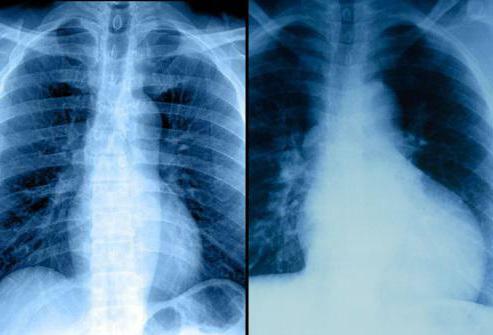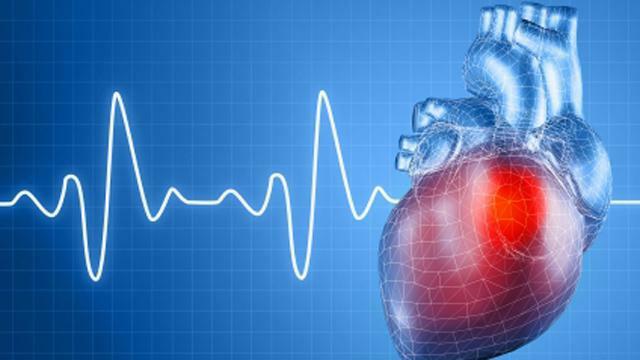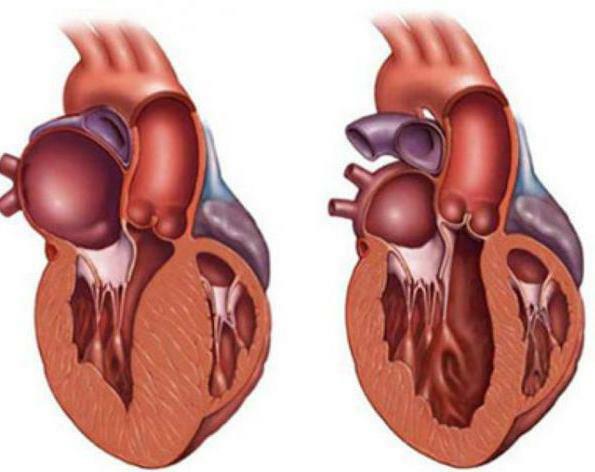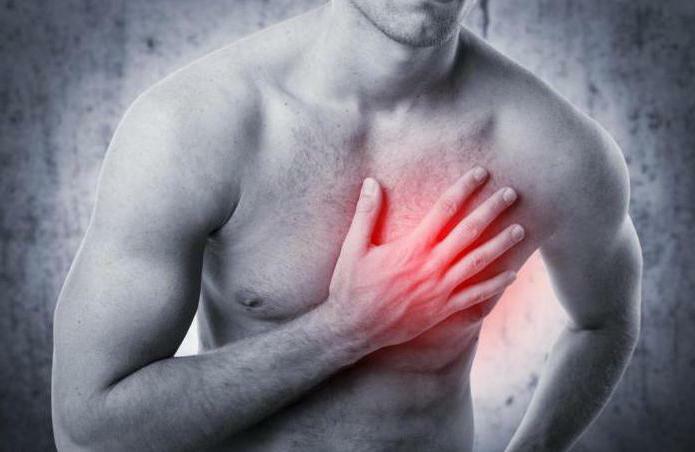Increased Heart: Causes, Symptoms, Treatment, and Consequences
In their practice, doctors often face people who have heart disease. Most often this applies to elderly or senile patients. In some cases, heart pathologies are also found in the able-bodied population. Newborn babies who have acquired defects in the prenatal period are no exception. One of the symptoms of such pathologies is an enlarged heart. This symptom is common in many cardiological diseases. The increase in the heart muscle usually indicates a long-term current pathology leading to CHF.

Cardiomegaly - what is it?
Normally, the heart sizes are individual for each. They depend on the composition of a person, sex, age. It is believed that the size of the organ is approximately equal to the size of the palm pressed into the fist. Nevertheless, there are limits that separate the norm from pathology. An enlarged heart is called cardiomegaly. It can be found both in physical examination and in instrumental diagnostics. In most cases, the ventricle of the heart is increased, mainly the left one. Less often cardiomegaly occurs at the expense of the right departments. The enlargement of the body appears due to hypertrophy of the muscular layer, as well as due to dilated myocardium( dilatation).This phenomenon rarely occurs in a short time. Usually cardiomegaly is preceded by a prolonged chronic disease.

Enlarged heart: causes of
pathology Cardiomegaly may occur for a variety of reasons. It depends on the patient's age, hereditary predisposition, body weight and lifestyle. Sometimes an enlarged heart is considered a variant of the norm. In this case, cardiomegaly should be moderate. Such cases include permanent physical activity, pregnancy, rarely adolescence. A significant increase in the size of the heart in this category of people is also a pathology. Allocate the following causes of cardiomegaly:
- Congenital malformations( CHD).They are formed during pregnancy, can be of different sizes. With large or combined vices, heart failure occurs quickly. In this case, cardiomegaly can manifest itself in the first months of the child's life. If the vices are insignificant, the increase in the heart occurs gradually, sometimes does not occur at all.
- Inflammatory diseases. These include myo-, endo- and pericarditis. Most of these pathologies occur in childhood and adolescence. Cardiomegaly is observed only in cases when the disease has acquired a chronic form. Also to this group can be attributed dilated myopathy.
- Acquired heart diseases. Formed in adulthood. Most often they are a consequence of rheumatism.
- Chronic cardiovascular pathologies. These include myocardial ischemia( myocardial infarction, angina pectoris), arterial hypertension.
- Chronic diseases of the lungs. Among them - bronchial asthma, COPD.
- Pathologies of other organs and systems. Heart enlargement can be observed with severe anemia, renal and hepatic insufficiency, hyperthyroidism.
- Metabolic syndrome( obesity in combination with diabetes mellitus).
Mechanism of development of cardiomegaly
The pathogenesis of cardiomegaly depends on the cause. Most often, left ventricular hypertrophy occurs in people with metabolic syndrome, coronary artery disease, or hypertension. With a small supply of oxygen, the heart muscle contracts more rapidly than usual, and gradually increases in size. Approximately the same happens with hypertension. In this case, the heart does not have enough time to pump blood quickly because of its high blood pressure, so the body needs more effort. The mechanism of development of cardiomegaly differs in stenosis and valve insufficiency. In the case of these pathologies, the blood does not completely flow into the adjacent chamber or vessel( aorta, pulmonary artery) and causes the dilatation of one of the cardiac divisions. With long-term defects, both the ventricle and the atrium increase. In some cases, hypertrophy of the whole organ can occur. Right ventricular failure occurs with pulmonary pathologies, liver diseases.

Symptoms with enlarged heart
Symptoms of enlarged heart can be expressed in varying degrees. With hypertrophy of the left ventricle, patients complain of shortness of breath. Attacks of lack of air arise during physical exercises, lifting of weights, fast and long walking. With severe cardiomegaly, shortness of breath may be at rest. In addition, some patients have edematous syndrome. Most often, liquid accumulates on the lower third of the shins in the evening. If the cause of CHF is ischemia, patients are concerned about pain in the heart area. Also, the clinical picture depends on the cause of cardiomegaly. With pulmonary pathologies, cough and asthma are added to the listed symptoms. Liver insufficiency is characterized by massive edema( ascites, anasarca), swelling of the cervical veins. Older people with an enlarged heart often have hypertension.

How is cardiomegaly diagnosed?
To reveal cardiomegaly, there is not enough evidence of anamnesis. For this it is necessary to perform palpation and percussion of the organ. When tapping the heart, it becomes clear to the doctor whether its size corresponds to the norm or exceeds its limits. In addition, chest X-ray is performed. With cardiomegaly, the outline of the organ in the pictures is enlarged. To determine in which departments hypertrophy is observed, an ECG is performed. Due to this research it is possible to learn about the cause of the disease( ischemia, lung pathology).The most accurate for diagnosis is EchoCG( ultrasound of the heart).It allows you to determine the thickness of the myocardium in each chamber, the size of the cavities, the presence of dilatation.

Treatment of enlarged heart
When this symptom is identified, patients are asked what to do if the heart is enlarged. Treatment should be started only after a complete examination and finding out the reasons. If necessary, bronchodilators, antihypertensives, diuretics are prescribed. In some cases, a combination of these funds is required. Regardless of the cause, it is important to take medications that affect the suppression of heart failure. These include preparations "Coronal", "Propranolol", "Captopril", etc. In the case of severe heart defects, surgical treatment is necessary. It is also prescribed for persistent ischemia and acute circulatory failure.

Increased Heart: Consequences of
Disease Unfortunately, heart failure rarely passes completely, as it is a chronic progressive disease. With inadequate therapy or its absence, the consequences can be serious. In the case of severe cardiomegaly, the patient is constantly short of air, which causes all organs to suffer. Also, the disease can lead to myocardial infarction, stroke, thromboembolism of cardiac or pulmonary vessels.
